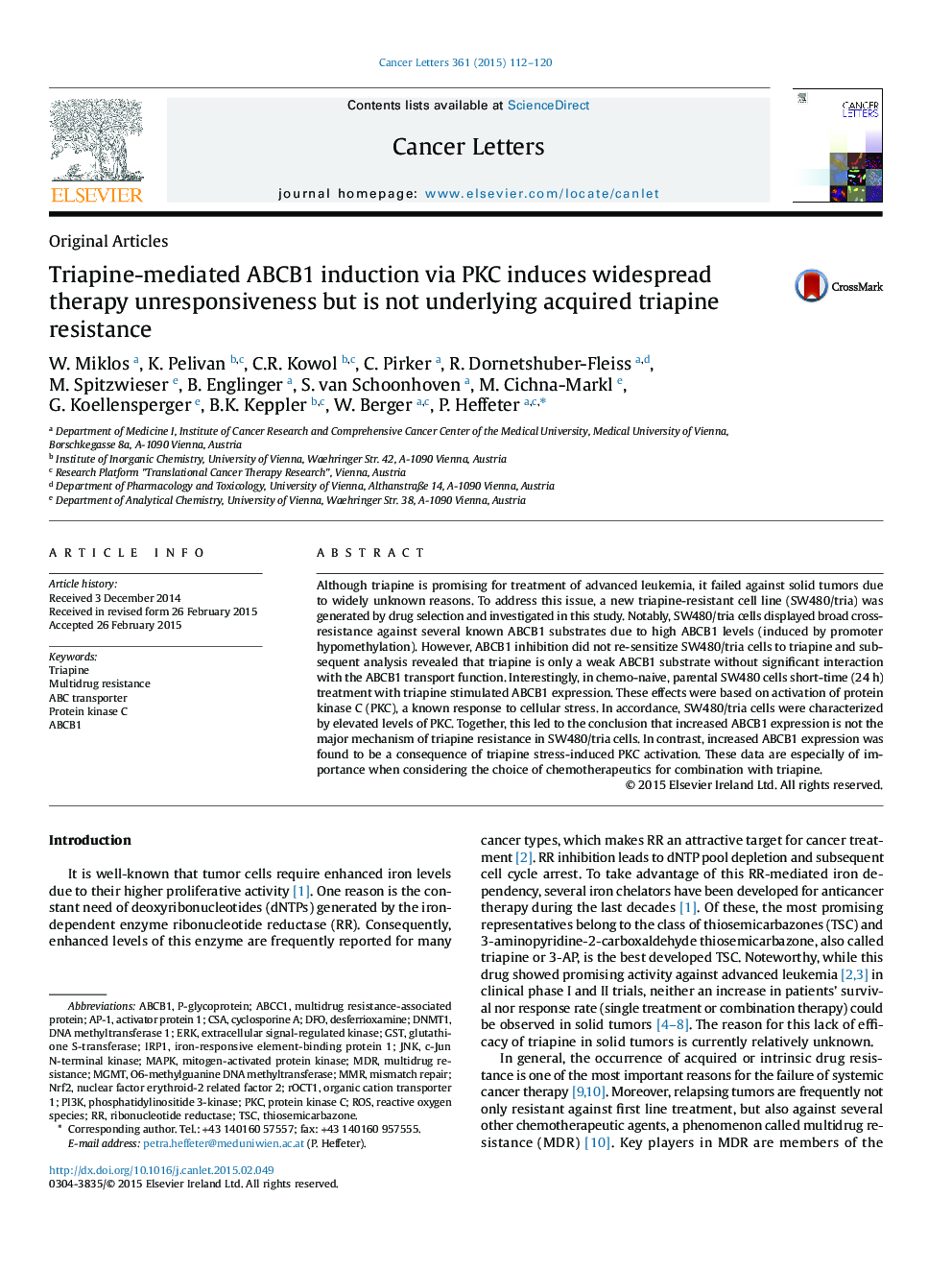| Article ID | Journal | Published Year | Pages | File Type |
|---|---|---|---|---|
| 2112450 | Cancer Letters | 2015 | 9 Pages |
•New triapine-resistant cell line was generated by drug selection.•Triapine-resistant cells are cross-resistant against several ABCB1 substrates.•Triapine induces ABCB1 via PKC (in chronic as well as short-term treatment).•In-depth analyses showed that triapine is only a weak ABCB1 and no ABCC1 substrate.
Although triapine is promising for treatment of advanced leukemia, it failed against solid tumors due to widely unknown reasons. To address this issue, a new triapine-resistant cell line (SW480/tria) was generated by drug selection and investigated in this study. Notably, SW480/tria cells displayed broad cross-resistance against several known ABCB1 substrates due to high ABCB1 levels (induced by promoter hypomethylation). However, ABCB1 inhibition did not re-sensitize SW480/tria cells to triapine and subsequent analysis revealed that triapine is only a weak ABCB1 substrate without significant interaction with the ABCB1 transport function. Interestingly, in chemo-naive, parental SW480 cells short-time (24 h) treatment with triapine stimulated ABCB1 expression. These effects were based on activation of protein kinase C (PKC), a known response to cellular stress. In accordance, SW480/tria cells were characterized by elevated levels of PKC. Together, this led to the conclusion that increased ABCB1 expression is not the major mechanism of triapine resistance in SW480/tria cells. In contrast, increased ABCB1 expression was found to be a consequence of triapine stress-induced PKC activation. These data are especially of importance when considering the choice of chemotherapeutics for combination with triapine.
